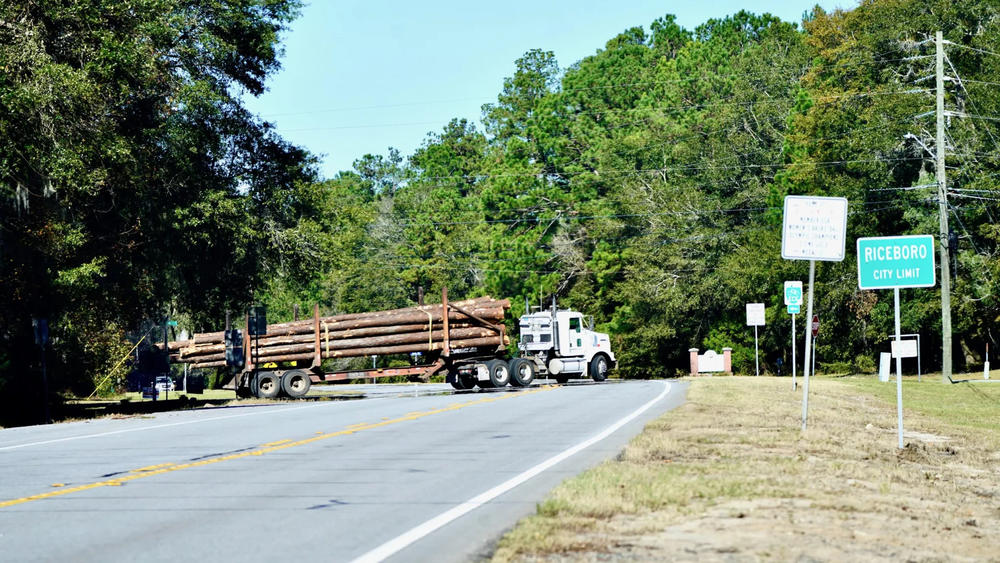
Caption
A logging truck rolls out with a fill load on the outskirts of Riceboro, Ga. Weyerhaeuser, which owns thousands of acres in the area, is seeking a state permit to use the toxic chemical methyl bromide in a proposed log fumigation facility. Local officials and residents say they oppose the plan.
Credit: Robin Kemp / The Current


